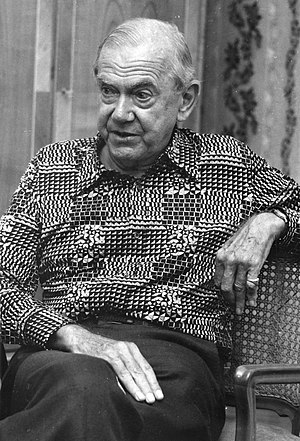
In Italy, for 30 years under the Borgias, they had warfare, terror, murder and bloodshed, but they produced Michelangelo, Leonardo da Vinci and the Renaissance. In Switzerland they had brotherly love, they had 500 years of democracy and peace - and what did that produce? The cuckoo clock.
Share this quote:
In human relationships, kindness and lies are worth a thousand truths.
Share this quote:
There is always one moment in childhood when the door opens and lets the future in.
Share this quote:
“Eternity is said not to be an extension of time but an absence of time, and sometimes it seemed to me that her abandonment touched that strange mathematical point of endlessness, a point with no width, occupying no space.”
Share this quote:
“I cant talk you in terms of time --your time and my time are different”
Share this quote:
“Life would go out in a fraction of a second (that was the phrase), but all night he had been realizing that time depends on clocks and the passage of light. There were no clocks and the light wouldnt change. Nobody really knew how long a second of pain could be. It might last a whole purgatory--or for ever.”
Share this quote:
“...five years work many changes. At the end of a war all our portraits are out of date: the timid man had been given a gun to slay with, and the brave man had found is nerve fail him in the barrage.”
Share this quote:
“The truth, he thought, has never been of any real value to any human being - it is a symbol for mathematicians and philosophers to pursue. In human relations kindness and lies are worth a thousand truths.”
Share this quote:
“Ο θάνατος είναι πάντα από μόνος του μια απόδειξη ειλικρίνειας.”
Share this quote:
“How often the priest had heard the same confession--Man was so limited: he hadnt even the ingenuity to invent a new vice: the animals knew as much. It was for this world that Christ had died: the more evil you saw and heard about you, the greater the glory lay around the death; it was too easy to die for what was good or beautiful, for home or children or civilization--it needed a God to die for the half-hearted and the corrupt.”
Share this quote:
“If only it were possible to love without injury – fidelity isn’t enough: I had been faithful to Anne and yet I had injured her. The hurt is in the act of possession: we are too small in mind and body to possess another person without pride or to be possessed without humiliation. In a way I was glad that my wife had struck out at me again – I had forgotten her pain for too long, and this was the only kind of recompense I could give her. Unfortunately the innocent are always involved in any conflict. Always, everywhere, there is some voice crying from a tower. ”
Share this quote:
“Point me out the happy man and I will point you out either extreme egotism, selfishness, evil -- or else an absolute ignorance.”
Share this quote:
“Like some wines our love could neither mature nor travel.”
Share this quote:
“She couldnt avoid being serious about things she cared for, and happiness made her grave at the thought of all the things which might destroy it.”
Share this quote:
“He gave her a bright fake smile; so much of life was a putting off of unhappiness for another time. Nothing was ever lost by delay. He had a dim idea that perhaps if one delayed long enough, things were taken out of ones hands altogether by death.”
Share this quote:
“I had to touch you with my hands, I had to taste you with my tongue; one cant love and do nothing.”
Share this quote:
“I recognized my work for what it was--as unimportant a drug as cigarettes to get one through the weeks and years. If we are extinguished by death, as I still try to believe, what point is there in leaving some books behind any more than bottles, clothes, or cheap jewellry?”
Share this quote:
“I dont care a damn about men who are loyal to the people who pay them, to organizations...I dont think even my country means all that much. There are many countries in our blood, arent there, but only one person. Would the world be in the mess it is if we were loyal to love and not to countries?”
Share this quote:
“We are all resigned to death: its life we arent resigned to.”
Share this quote:
“The sense of unhappiness is so much easier to convey than that of happiness. In misery we seem aware of our own existence, even though it may be in the form of a monstrous egotism: this pain of mine is individual, this nerve that winces belongs to me and to no other. But happiness annihilates us: we lose our identity.”
Share this quote: